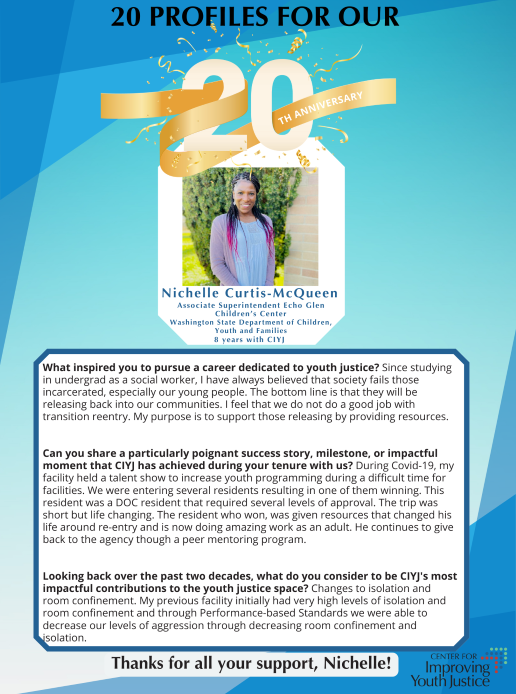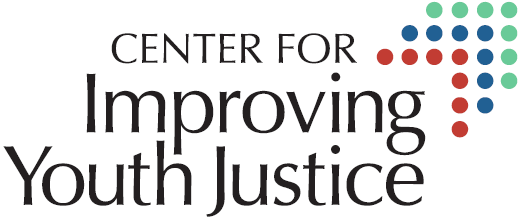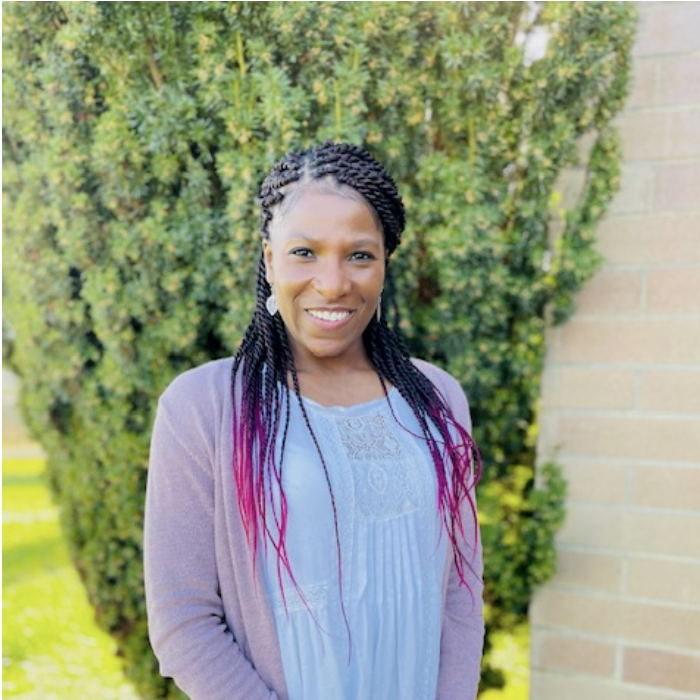
- Preferred Name, Title, and How Many Years You’ve Worked with CIYJ?
Nichelle Curtis-McQueen, Since 2016
- What is the most challenging aspect of your role? What aspect is the most rewarding?
Learning the ins and outs of the data collection and understanding the definitions for Performance-based Standards. There are times when Performance-based Standards definitions do not align with my facility’s definitions. Also, interruption of the definitions. The one thing that has been rewarding is seeing our success over time. We tend to have very small steps towards success that often are not celebrated.
- Looking back over the past two decades, what do you consider to be CIYJ’s most impactful contributions to the youth justice space?
Changes to isolation and room confinement. My previous facility initially had very high levels of isolation and room confinement and through Performance-based Standards we were able to decrease our levels of aggression through decreasing room confinement and isolation.
- Can you share a particularly poignant success story, milestone, or impactful moment that CIYJ has achieved during your tenure with us?
During COVID, my facility held a talent show to increase youth programming during a difficult time for facilities. We entered several residents, and one of them won. This resident was a DOC resident who required several levels of approval. The trip was short but life-changing. The resident who won was given resources that changed his life around re-entry and is now doing amazing work as an adult. He continues to give back to the agency through a peer mentoring program.
- What message would you like to convey to our supporters, partners, and advocates as CIYJ celebrates this significant anniversary?
“Our youth make up 6% of the population but 100% of the future”. Anything we can do to support them is life-changing.
- What inspired you to pursue a career dedicated to youth justice?
Since studying in my undergrad as a social worker, I have always believed that society fails those incarcerated, especially our young people. The bottom line is that they will be released back into our communities. I feel that we do not do a good job with transition re-entry. My purpose is to support those releasing by providing resources.

